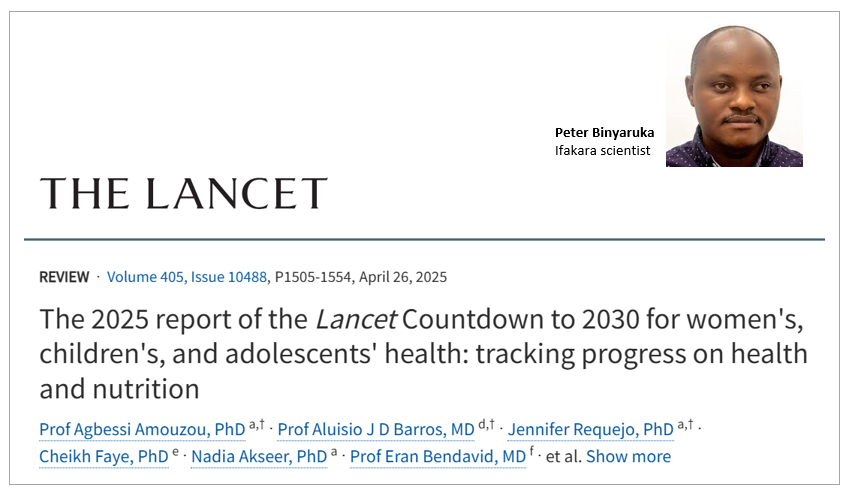
REPORT: Millions of women, children, and teens at risk if health services don’t improve

A landmark report published in The Lancet warns that millions of women, children, and adolescents remain at serious risk unless access to quality health services is urgently improved. The 2025 report of the Lancet Countdown to 2030 reveals that many countries—especially low- and middle-income ones—are not on track to meet global health goals for this vulnerable population.
Major barriers undermining progress
Developed by global health experts and researchers from multiple countries, the report outlines major barriers including poor access to healthcare, weak health systems, and insufficient funding. It also notes a notable slowdown in progress since 2015, despite efforts to meet the health-related Sustainable Development Goals (SDGs).
Sub-Saharan Africa, South Asia hit hardest
Among the regions most severely affected are sub-Saharan Africa and South Asia, which together account for 99% of maternal deaths and 98% of child and adolescent deaths globally. These regions continue to carry the heaviest burden of maternal and child mortality.
Analyzing the health landscape
The report presents detailed data across three areas: contextual factors, mortality, causes of death, and nutritional status, and coverage, equity, and service quality. The authors then identify priority actions needed to accelerate progress, especially in reproductive, maternal, newborn, child, and adolescent health (RMNCAH) and nutrition.
While some positive trends—like increased access to select health services and nutrition programs—are noted, deep inequities persist, particularly in communities affected by poverty or conflict. Access to essential interventions remains unequal, and many are still underserved.
The Five 'S's for progress
To get back on track, the authors concluded with a strong call for action focused around five key priorities, referred to as the “five S’s” for progress in RMNCAH and nutrition: (i) Sub-Saharan Africa-focused strategies; (ii) Strengthening health systems; (iii) Safeguarding progress against crises and inequalities; (iv) Supporting robust data, monitoring, and accountability; and (v) Stimulating integration of RMNCAH and nutrition.
Ifakara scientist contributes to the report
Contributing to the report is Dr. Peter Binyaruka, a Senior Health Economist at Ifakara Health Institute in Tanzania, who, along with 72 global experts played a role in this important effort to highlight and guide urgent global health action.
About Countdown to 2030 in Tanzania
The Countdown to 2030 (CD2030) initiative monitors Tanzania’s progress in women’s, children’s, and adolescents’ health by tracking national plans and investments in reproductive, maternal, newborn, child and adolescent health and nutrition (RMNCAH+N). Since 2020, Ifakara Health Institute has been implementing CD2030 activities in collaboration with the Ministry of Health (MoH) and international partners to strengthen the analysis and synthesis of health data to inform national and local reviews of progress and performance in the context of the national health plans and Global Financing Facility (GFF) investment case for RMNCAH+N.
The Tanzania CD2030 collaboration team includes experts from Ifakara Health Institute led by Dr. Honorati Masanja, who serves as the Principal Investigator and Josephine Shabani as the Project Coordinator. The team also includes Peter Binyaruka, Jacqueline Minja, Samwel Lwambura, and Rehema Salum, each contributing their expertise to ensure comprehensive monitoring and evaluation of health outcomes.
Read the report here.
